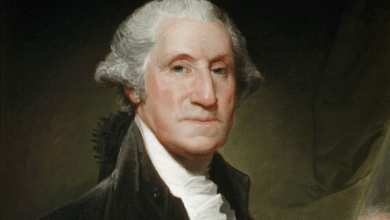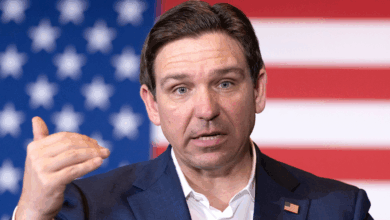César Chávez Ethnicity, Age, Bio and Net Worth.

César Chávez’s Ethnicity:
César Chávez was of Mexican-American descent, born to parents Librado Chávez and Juana Estrada Chávez, who were both of Mexican origin. His heritage played a significant role in shaping his identity and activism, particularly in his fight for the rights of farmworkers and social justice. Chávez’s cultural background connected deeply to his Mexican heritage, influencing his values, beliefs, and commitment to improving the lives of marginalized communities.
Key aspects of César Chávez’s ethnicity:
- Mexican-American descent: Chávez’s parents were born in Mexico, and their experiences as immigrants and laborers significantly influenced his dedication to advocating for workers’ rights and social justice.
- Cultural heritage: Chávez’s Mexican heritage instilled in him a strong sense of community, family, and social justice, which became central themes in his activism.
- Language and traditions: Growing up, Chávez was immersed in traditional Mexican foods, music, and celebrations, which provided a sense of belonging and identity.
- Impact on activism: Chávez’s ethnicity and experiences as a Mexican-American informed his approach to labor organizing and social justice, emphasizing the importance of cultural identity and community empowerment.
César Chávez’s Age, Height and Weight:
César Chávez was a prominent American labor leader and civil rights activist. Some key details about his physical stats and age:
- Age: César Chávez was born on March 31, 1927, and passed away on April 23, 1993, at the age of 66.
- Height: César Chávez’s height is reported to be around 5 feet 6 inches (168 cm).
- Weight: Information about César Chávez’s weight is not readily available, but given his active lifestyle and commitment to farm work, it’s likely he maintained a healthy weight throughout his life.
Chávez’s life was marked by his dedication to improving the lives of farmworkers and advocating for social justice, leaving a lasting legacy in the labor movement.
César Chávez’s Family and Relationships:
César Chávez’s family played a significant role in his life and activism.
Immediate Family
- Father: Librado Chavez, a pivotal figure in American labor activism and co-founder of the United Farm Workers (UFW)
- Siblings: Richard Chavez and Rita Chavez Medina, both essential contributors to the UFW movement
- Richard Chavez: Skilled organizer who led UFW field operations, negotiated contracts, and organized boycotts
- Rita Chavez Medina: Integral to UFW office operations, handling administrative duties, finances, and community outreach
Children and Grandchildren
- Children: Fernando Chavez (son), who became a lawyer and advocate for workers’ rights, and other children who continued his legacy
- Grandchildren: Eight grandchildren who carry on his legacy through activism, labor rights, and farmworker communities
Influential Relatives
- Dolores Huerta: Co-founder of the National Farm Workers Association with César Chávez, shaping the labor movement’s trajectory
- Julio Cesar Chavez Jr.: A Mexican boxer and grandson of a different César Chávez (Julio Cesar Chavez Sr.), not directly related to the labor leader César Chávez
Family Legacy
César Chávez’s family continues to uphold his legacy through various initiatives, including ¹:
- United Farm Workers union: Upholding workers’ rights and continuing Chávez’s mission for labor equality
- Educational Initiatives: Scholarships and programs instilling civic responsibility and fostering future leaders
- Historic Landmarks: National monuments commemorating Chávez’s advocacy and sites maintained for educational purposes

César Chávez’s Biography:
César Chávez was a renowned American labor leader and civil rights activist who dedicated his life to improving the working conditions and rights of farmworkers.
Early Life
César Chávez was born on March 31, 1927, in Yuma, Arizona, to Librado Chávez and Juana Estrada Chávez, Mexican-American parents. He grew up in a farmworker family and experienced the harsh realities of migrant labor firsthand.
Career
Chávez began his career as a farmworker and eventually became a vocal advocate for workers’ rights. He co-founded the National Farm Workers Association (NFWA) in 1962, which later merged with the Agricultural Workers Organizing Committee (AWOC) to form the United Farm Workers (UFW).
Activism
Chávez led numerous strikes, boycotts, and marches, including the famous Delano grape strike in 1965, to push for better wages, working conditions, and union recognition. His nonviolent approach and commitment to social justice inspired a generation of activists.
Legacy
Chávez’s tireering efforts led to significant improvements in the lives of farmworkers, including better wages, benefits, and working conditions. He remains an iconic figure in American labor history, and his birthday, March 31, is a state holiday in California and a celebrated day of service and activism across the United States.
Personal Life
Chávez was married to Helen Fabela Chávez and had eight children. He was deeply influenced by his Catholic faith and the teachings of Mahatma Gandhi, which guided his commitment to nonviolent activism.
César Chávez’s legacy continues to inspire labor activists, social justice advocates, and community leaders around the world.
César Chávez’s Net Worth:
César Chávez’s net worth isn’t publicly documented, but I can tell you about his lasting impact and legacy. As a prominent labor leader and civil rights activist, Chávez dedicated his life to improving the working conditions and rights of farmworkers, leaving a lasting legacy in the labor movement.
- Julio Cesar Chavez Jr.’s Net Worth: Estimated to be around $8 million in 2025, according to some sources, while others report it to be around $6 million.
- Sources of Income: His wealth primarily comes from his professional boxing career, including high-profile fights and endorsements.
- Fight against Canelo Alvarez (2017): Earned $3 million upfront, with total earnings reaching $6 million after pay-per-view shares.
- Fight against Sergio Martinez (2012): Earned $3 million.
- Fight against Daniel Jacobs (2019): Earned $3 million, although he had to surrender $1 million due to missing weight.
- Upcoming Fight: Chavez Jr. is set to fight Jake Paul, with an estimated purse of $1.5 million, potentially reaching $2.5 million with pay-per-view incentives.
César Chávez’s Cars Collection:
There are two notable figures with the name Julio Cesar Chavez, and it seems the question might be referring to either the legendary boxer Julio Cesar Chavez or potentially someone with a car collection associated with the name “El Chavez Collection”. Let’s explore both possibilities:
Julio Cesar Chavez’s Car Collection
- Legendary Boxer Julio Cesar Chavez: According to available information, Julio Cesar Chavez’s car collection includes luxury vehicles such as:
- Lamborghini
- Rolls-Royce Cullinan
- Ferrari
- These cars reflect his success and wealth, accumulated during his illustrious boxing career.
El Chavez Collection: This collection features an impressive array of supercars and hypercars, including:
- Bugatti Chiron
- Bugatti Chiron Pur Sport
- Gunther Werks GW-993
- Koenigsegg Regera
- Lamborghini Aventador
- Lamborghini Centenario
- McLaren 765LT
- Pagani Huayra
- The El Chavez Collection is based in Houston, Texas, and showcases a diverse range of high-performance vehicles.
Without more specific information, it’s challenging to determine which collection is being referred to. However, both collections highlight a passion for luxury and high-performance vehicles.
César Chávez’s House Collection:
César Chávez had a few notable homes throughout his life, reflecting his humble and dedicated lifestyle. Some key residences associated with him:
- César E. Chávez National Monument: This is the home where César and Helen Chávez lived from 1971 until their deaths in 1993 and 2016, respectively. The modest two-bedroom house is preserved exactly as Helen left it, with small mementos in the kitchen and family photos in the living room. The home is not open to the public but serves as a lasting symbol of the American farmworker movement.
- San Jose Family Home: The Chávez family home in San Jose, located at 53 Scharff Avenue, has been transformed into a community center. This historic landmark continues Chavez’s work by providing education, historic preservation, and housing for young adults.
- Oxnard Residence: César Chávez lived with his family in a storage building at 452 N. Garfield Avenue in Oxnard during their 1939 stay. Although the house itself may not be a prominent landmark today, it marks an important part of Chávez’s life and connection to the community.
These homes reflect Chávez’s commitment to his family, community, and the labor movement, showcasing his humble and dedicated lifestyle.
Some FAQs about César Chávez:
1- Who was César Chávez?
César Chávez was a prominent American labor leader and civil rights activist who co-founded the United Farm Workers (UFW) and dedicated his life to improving the working conditions and rights of farmworkers.
2- When was César Chávez born?
César Chávez was born on March 31, 1927.
3- What did César Chávez do?
Chávez led numerous strikes, boycotts, and marches to push for better wages, working conditions, and union recognition for farmworkers. He is known for his nonviolent approach and commitment to social justice.
4- What is César Chávez’s legacy?
Chávez’s tireless efforts led to significant improvements in the lives of farmworkers, including better wages, benefits, and working conditions. He remains an iconic figure in American labor history, and his birthday is a state holiday in California.
5- What inspired César Chávez?
Chávez was deeply influenced by his Catholic faith and the teachings of Mahatma Gandhi, which guided his commitment to nonviolent activism.
6- What organization did César Chávez co-found?
Chávez co-founded the National Farm Workers Association (NFWA), which later merged with the Agricultural Workers Organizing Committee (AWOC) to form the United Farm Workers (UFW)


